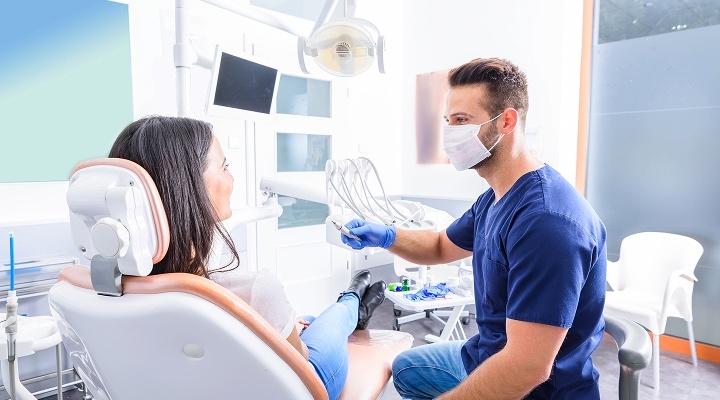Data breaches are a very real threat to healthcare providers such as dentists. You have to ensure that your dental practice has the proper dental IT solutions and cybersecurity procedures in place to adhere to PIPEDA (Personal Information Protection and Electronic Documents Act) principles and prevent data breaches.
The need for cybersecurity in the healthcare industry
More and more dental practices and other healthcare businesses are being targeted by cyber criminals:
- The healthcare industry accounts for 43% of all data security breaches
- Since September 2009, almost 21,000,000 health records have been compromised
- 47% of cyber attacks target small businesses like dental practices
Many hackers target small dental offices because they think small businesses don’t have the proper security software or firewalls in place.
Your dental practice is a wealth of patient data, which means you have to take the proper cybersecurity precautions to make sure that you are adhering to PIPEDA principles and your patient data doesn’t fall into the wrong hands.
Digital dental practices
In the last few years, dental practices have taken a huge step towards digitizing their businesses and utilizing the internet to improve patient care and centralize dental data.
Storing patient information in the cloud has its benefits:
- Automatic backup
- Access is available anytime, anywhere
- Patient data can be securely shared between practices
Dental practices are vulnerable to security threats and data breaches if proper precautions are not taken. Stolen patient data can be sold on the DarkWeb, resulting in identity theft, fraud, blackmail, and other criminal activities. Hackers may deny you access to the data they stole through ransomware and extort your practice for money.
The consequences to your dental practice include not only time and money spent on crisis management and data recovery, but also potential lawsuits from patients, brand and reputation damage, and loss of important patient information. In the end, you are on the line for any potential data breaches.
Adhering to PIPEDA principles in dental practices
PIPEDA was put into effect on January 1, 2004 and is comprised of ten PIPEDA principles:
- Accountability
- Identifying Purposes
- Consent
- Limiting Collection
- Limiting Use, Disclosure, and Retention
- Accuracy
- Safeguards
- Openness
- Individual Access
- Challenging Compliance
This Canadian act ensures the safe collection and storage of personal data that all businesses, including dental practices, need to comply with. Personal data includes name, age, address, phone number, email, weight, height, health information, medical history, income, blood type, marital status, and much more. While PIPEDA is applicable to all Canadian businesses, there are also additional privacy acts to adhere to. Read more about the privacy and security requirements on data for each province.
Every dental practice needs to ensure that their patient data is securely stored. Below are two crucial tips in ensuring your dental practice adheres to PIPEDA principles.
Train employees to mitigate security risks
Data has shown that human error is commonly the cause of data breaches and that the actions of healthcare employees cause 3x as many breaches as external attacks. Without the proper training, employees could be putting your entire practice at risk.
- Restrict access to personal email accounts and non-work-related websites
- Discourage joining public or unsecured Wi-Fi networks
- Require passwords for any device used for the dental practice in case it’s lost or stolen
- Choose strong passwords
- Set user permissions for different roles
- Educate staff on the latest cyber threats
- Outline a response plan so the team knows what to do in the event of an attack
- Avoid disclosing private contact or treatment information over the phone or email – instead, use encrypted communication methods, such as encrypted email, to protect sensitive patient data
Implement security features
There are a few dental IT solutions that you should put in place to help ensure you have the proper foundation set up to prevent security breaches.
- Install anti-virus and anti-malware software for all of your devices
- Set up VPN (virtual private network)
- Always update your web browser, software, and operating system
- Encrypt data transmitted to insurance companies, labs, and other practices
- Use a cloud backup system to prevent loss from theft or natural disasters
- Automate the encryption of your production and backup hard drives with appropriate security hardware
ClearDent helps you stay fully compliant with both provincial and federal regulations. Our dental software comes with automatic software updates, transfers data securely, and is both encrypted and password protected to meet industry data security guidelines. See how we can help you manage your cybersecurity. Sign up for a demo today.






